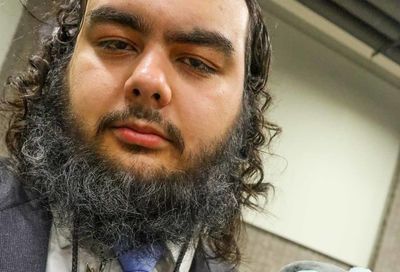Study: U.S attitudes towards bisexuals are “neutral, if not ambivalent”
About one-third of Americans "neither agree nor disagree" with five negative stereotypes about bisexuals

A new study by Indiana University’s Center for Sexual Health Promotion finds that while the American public has largely adopted more positive views of gays or lesbians, their attitudes toward bisexual men and women are “relatively neutral, if not ambivalent.”
The study, published in the online peer-reviewed journal PLOS ONE, is only the second one to examine attitudes towards bisexuals in a nationally representative sample. It’s also the first to do so with a sample of gay, lesbian, and people of other orientations (such as pansexual, queer or other identity labels), in addition to those who identify as heterosexual. The sample was taken from the Center for Sexual Health Promotion’s 2015 Survey of Sexual Health and Behavior.
The study asked participants to respond to five negative connotations that have historically been associated with bisexuals: that they are confused about their sexuality, that bisexuality is a “phase,” that they are “would have sex with anyone,” that bisexuals are incapable of demonstrating fidelity, and that they are vectors of sexually transmitted diseases.
According to the data, a plurality of male and female respondents, about one-third, were likely to “neither agree nor disagree” with the five statements. Those who identified as “other” sexual identities had the most positive attitudes toward bisexuality, followed by gays and lesbians, and then heterosexuals.
The study also showed that age, income level and level of education played roles in people’s attitudes, with those under the age of 25, and those with higher incomes and higher levels of education being more likely to have a positive attitude toward bisexuals. Overall, respondents expressed more positive attitudes of bisexual women than bisexual men.
“While our society has seen marked shifts in more positive attitudes toward homosexuality in recent decades, our data suggest that attitudes toward bisexual men and women have shifted only slightly from very negative to neutral,” Brian Dodge, an associate professor at Indiana University and the lead researcher of the study, said in a statement. “That nearly one-third of participants reported moderately to extremely negative attitudes toward bisexual individuals is of great concern, given the dramatic health disparities faced by bisexual men and women in our country, even relative to gay and lesbian individuals.”
According to Dodge, bisexuals face disproportionate rates of physical, mental or other health disparities compared to those who identify exclusively as heterosexual or homosexual. While more research is needed to pinpoint the cause of these disparities, he suggests that negative attitudes and stigma may be playing a role.
“After documenting the absence of positive attitudes toward bisexual men and women in the general U.S. population, we encourage future research, intervention and practice opportunities focused on assessing, understanding and eliminating biphobia — for example, among clinicians and other service providers — and determining how health disparities among bisexual men and women can be alleviated,” Dodge said.
Support Metro Weekly’s Journalism
These are challenging times for news organizations. And yet it’s crucial we stay active and provide vital resources and information to both our local readers and the world. So won’t you please take a moment and consider supporting Metro Weekly with a membership? For as little as $5 a month, you can help ensure Metro Weekly magazine and MetroWeekly.com remain free, viable resources as we provide the best, most diverse, culturally-resonant LGBTQ coverage in both the D.C. region and around the world. Memberships come with exclusive perks and discounts, your own personal digital delivery of each week’s magazine (and an archive), access to our Member's Lounge when it launches this fall, and exclusive members-only items like Metro Weekly Membership Mugs and Tote Bags! Check out all our membership levels here and please join us today!




















You must be logged in to post a comment.